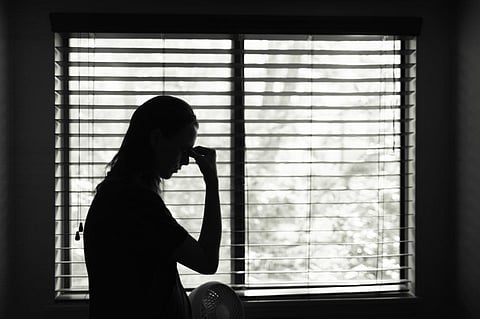

It started with the novel coronavirus disease (COVID-19) pandemic in 2020 and has now been confirmed by the United Nations: Violence against women intensified during the pandemic — so did sexual harassment inside as well as outside of homes. This worsened women’s mental and emotional health, the body said.
“Widespread stay-at-home orders to curb the spread of COVID-19 meant millions of women across the globe were locked in with their abusers, creating dangerous conditions for violence against women (VAW), often with tragic consequences,” the report published November 24, 2021, said.
For starters: Nearly half the women surveyed across 13 countries (45 per cent) reported that they or a woman they knew experienced increased violence since the COVID-19 pandemic. The proportion of such women was the highest in Kenya (90 per cent).
A quarter of women surveyed said they felt unsafe in their own homes as “household conflicts increased during the pandemic”.
Physical abuse was cited as the prime reason by over 21 per cent women surveyed, according to the report. Some women reported that they were hurt by other family members (21 per cent).
UN Women conducted Rapid Gender Assessment (RGA) surveys across 13 countries, most of them low- and middle-income countries with regional diversity. These countries were Albania, Bangladesh, Cameroon, Colombia, Ivory Coast, Jordan, Kenya, Kyrgyzstan, Morocco, Nigeria, Paraguay, Thailand and Ukraine.
The research was undertaken in two phases: Phase I (April-June 2021) and Phase II (August-September 2021). Data was collected from 16,154 women aged 18 years and above.
The report was launched ahead of 16 Days of Activism against Gender-Based Violence, from November 25-December 10. The theme of the campaign is: “Orange the World: End Violence against Women Now!”
The forms of VAW include physical abuse, verbal abuse, sexual harassment, denial of basic needs (healthcare, money, food, water, shelter) and denial of communication.
Face of violence
Both employed as unemployed women faced some sort of violence; but unemployed women were more vulnerable and affected. More than half of employed women surveyed (52 per cent) reported VAW experiences; 48 per cent of unemployed women reported the same.
More unemployed women (33 per cent) said they felt unsafe at home in contrast to employed women (26 per cent).
More women living in rural areas reported feeling more unsafe walking alone at night (44 per cent) compared to women living in urban areas (39 per cent).
One in five women reported feeling unsafe walking alone during the day; nearly half the women surveyed felt unsafe walking alone at night.
Women in Bangladesh (72 per cent), Paraguay (62 per cent), Kenya (60 per cent) and Colombia (60 per cent) were more likely to report feeling unsafe at night than respondents in the other countries surveyed.
Nearly seven in 10 women felt domestic violence increased during the pandemic. These were accounted under how women’s perceptions about the trend, which is indicative of their fears.
The survey also examined how VAW affected women’s mental and emotional health: More than two in five women (41 per cent) reported “deterioration of mental / emotional health”. The study flagged this could in part be a result of violence against them.
For example, women who experienced or knew other women who experienced a form of VAW since COVID-19 were 1.3 times as likely to report increased mental and emotional stress as women who did not, the study said. Full-time caregivers and unemployed women were more likely to report a decline in mental health.
Similarly, women who faced some sort of violence during the pandemic were more food insecure (58 per cent).
UN Women Executive Director Sima Bahous said in a statement: “The COVID-19 pandemic, which necessitated isolation and social distancing, enabled a second, shadow pandemic of violence against women and girls, where they often found themselves in lockdown with their abusers. Our new data underlines the urgency of concerted efforts to end this.”